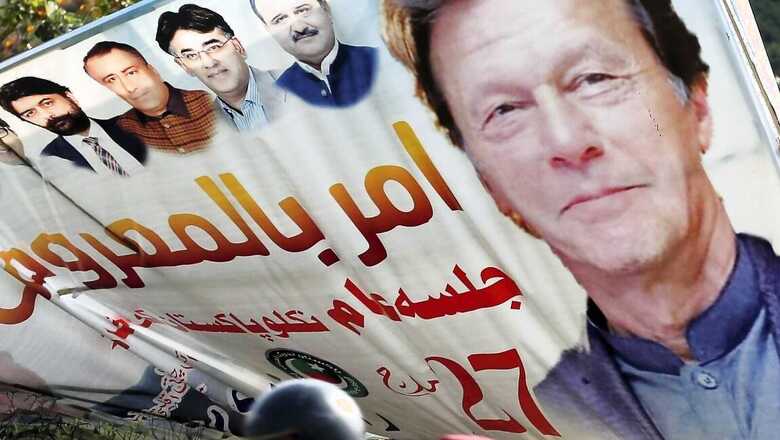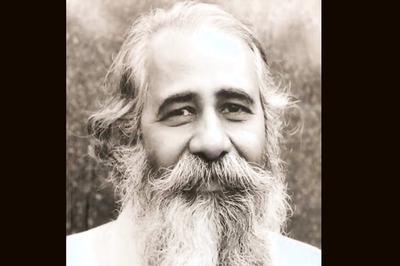
views
The Supreme Court of Pakistan’s judgment holding the ruling of the Deputy Speaker of the National Assembly (NA) disallowing the vote on the No-Confidence Motion (NCM) against the Prime Minister as ultra vires and unconstitutional, and restoring the NA was exactly what it should have been. In any other country, such a unanimous judgment would be a no-brainer given that it was an open-and-shut case. But in any other country, it is also unlikely that a sitting government would violate the Constitution as flagrantly as Imran Khan’s regime did. In Pakistan, however, the SC ruling was seen as a new dawn for democracy, the upholding of the rule of the Constitution and law, and the burial of the infamous ‘doctrine of necessity’ that has been used by Pakistan’s judiciary to legitimise and justify extra-constitutional steps taken mostly by the military.
While the euphoria caused by the SC ruling is understandable, it might be a bit of a stretch to consider this judgment as establishing the supremacy of the Constitution and blocking the path of any future extra-constitutional takeover by some dictator. It is one thing for Pakistani judges to pass a judgment against an unpopular civilian regime which had lost the crutches of the military that brought it to power, and quite another for judges to go directly against a military usurper or even against the military’s wishes. At least three judges—Chief Justice Umar Ata Bandial, Justice Ijazul Ahsan, and Justice Munib Akhtar—on the five-judge bench that was hearing the matter are not exactly known for being fair or neutral. In fact, some of their judgments have been extremely dubious—the Nawaz Sharif disqualification case and the Justice Faez Isa case are just two examples. But why let inconvenient facts spoil the mood. Suffice to say: One swallow (judgment) does not a summer (democracy) make.
The SC ruling was seen as a new dawn for democracy, the upholding of the rule of Constitution and law, and the burial of the infamous ‘doctrine of necessity’ that has been used by Pakistan’s judiciary to legitimise and justify extra-constitutional steps taken mostly by the military.
Having restored the NA, the vote of no-confidence is now scheduled for 9 April. If the NCM is conducted, then the next Prime Minister will also be elected on that day. At least, this is what the SC has ordered. But Imran Khan isn’t exactly known to follow the rules, especially when he is facing a humiliating defeat. The honourable thing for Imran Khan to do would be to resign. But once again, he isn’t exactly known to do the honourable thing. If anything, he is expected to do everything possible to muddy the waters and put a spoke in the wheel of the parliamentary procedures. There is speculation that the ruling party might resign en masse. There is also some talk of the Deputy Speaker—the Speaker has a NCM against him so he can’t preside over the session—indulging in some more trickery. But the writing on the wall is clear—Imran’s innings has ended and his tantrums can delay his being sent back to the pavilion, but cannot give him another chance in this, and perhaps even the next match. The bottomline being: He is being dropped from the list of probables for now. He has stepped on too many toes, burnt too many bridges, shown poor performance and has a terrible attitude.
Pakistan’s persistent problems
Imran’s end is, however, not the end of Pakistan’s problems. He is leaving behind a broken, bankrupt economy that is on the verge of a meltdown; a divided and toxic political culture; strained foreign relations; a governance that is drifting in its policies and an administration that is in complete disarray. His successor—most likely Shahbaz Sharif—faces a Herculean task to put the country back on the rails. The problem is that he will be landing in a perfect storm and will not have any luxury of time. Pakistan’s crises are immediate, but Shahbaz’s space for manoeuvre is very constrained. The turmoil—political, economic, and social—in Pakistan is just starting to unfold and the crown of thorns being placed on Shahbaz’s head will not be easily borne.
Shahbaz will have to run the show with a disparate coalition. The components of this coalition have competing interests. They got together to get rid of Imran Khan. Beyond that one-point agenda which they have achieved, they compete against each other. None of them are going to sacrifice their political interests, which will end up pulling the coalition in different directions. To face the onerous, even existential, challenges that confront Pakistan, the last thing Shahbaz needs is this kind of a coalition. He might be able to keep this motley crew together for a couple of months during which the coalition partners will agree on some immediate economic measures, and also do some political and legal engineering to undo some of the malicious things Imran did. But it will be impossible for this coalition to survive until next August when the term of the National Assembly ends. In other words, Pakistan is likely to see early elections, either by September/October or December/January. Since elections have to be held within 60–90 days of the NA being dissolved, it means that a caretaker setup will have to take over either by June end (for a September election) or by September/October for a December/January election.
Why this is important is because by November end, a new army chief has to be appointed. Surely Shahbaz would want to pick the next chief—it is now clear it will not be former ISI Chief Faiz Hameed, the man Imran wanted—before he demits office to a caretaker. A September election which PMLN hopes to win easily will give him time to pick Gen Qamar Bajwa’s successor. A December election will make it a tad difficult because it means announcing the next chief around two to three months before Bajwa retires, making him a lame duck. Of course, the Sharif family’s history with handpicked army chiefs has not been a happy one—Nawaz Sharif had problems with every single army chief he dealt with—but Shahbaz might be thinking that he will break the pattern.
Legislation to overturn some of the egregious laws passed by Imran will have to be executed in order to scrap the overseas Pakistani voting rights and the use of electronic voting machines.




















Comments
0 comment